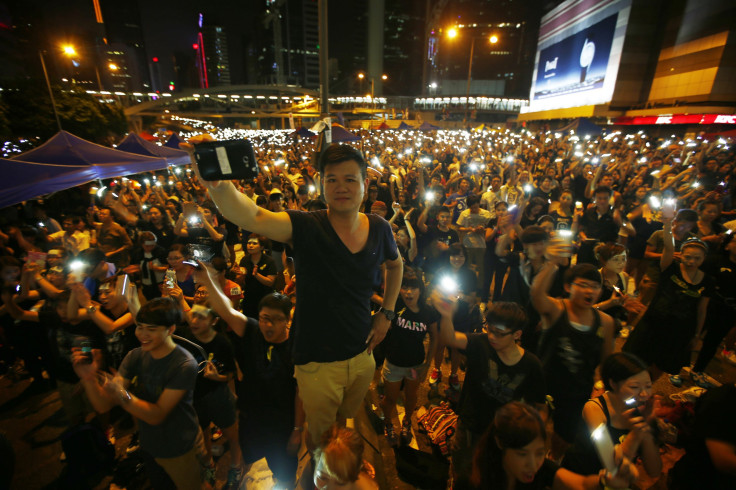Hong Kong Data Requests Jumped By 900% Before Occupy Central Protests Even Began

Life in Hong Kong has its perqs over living in mainland China. The civil liberties are more expansive, media is less restricted, and you don’t have to deal with the great Chinese firewall that keeps the rest of the country’s Internet in the dark. But even in Hong Kong, as a new transparency report shows, the number of government surveillance requests has skyrocketed, with authorities keeping a closer eye than ever on citizens’ online activity.
In the three years between 2010 and 2013, the total number of government requests increased by 900 percent. In 2013 alone, the Hong Kong government asked ISPs more than 5,550 times to turn over a user’s information, whereas the previous high was only about 190. Content removal requests also jumped by 240 percent since 2010, though the 2013 total was actually lower than that of 2012.
The stats come from the Hong Kong Transparency Report put together by Charles Mok, a Hong Kong-based Internet entrepreneur, and the Media Studies Center at the University of Hong Kong, for Silk. The report doesn’t include requests made as a result of the ongoing pro-democracy protests, but it does provide some insight into how the government might be responding to the demonstrations (which are supportive of Hong Kong lawmakers).
Another graph shows that as police increasingly rely on social networks to investigate crimes, the vast majority of the 2013 requests (4,557 of 5,511) were made by law enforcement. Of those, 2,899 were accepted with “contact information” listed as the primary goal of the requests. Other requests were made by the Office of the Communications Authority, which regulates the Hong Kong broadcasting industry, and the Customs and Excise Department, which protects against smuggling.
China, with its population of 1.4 billion people, filed only two data requests with Google, as the country relies almost entirely on the search engine Baidu.
© Copyright IBTimes 2025. All rights reserved.





















